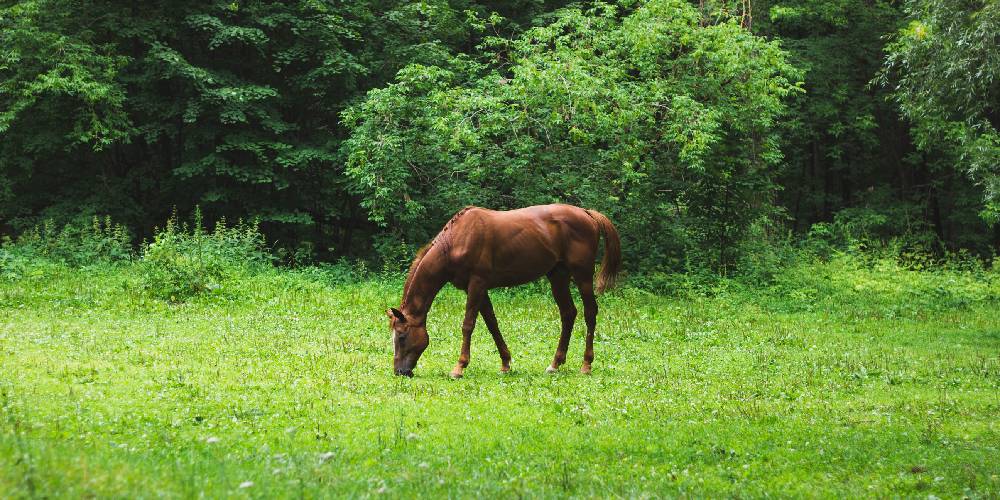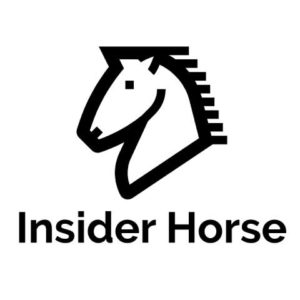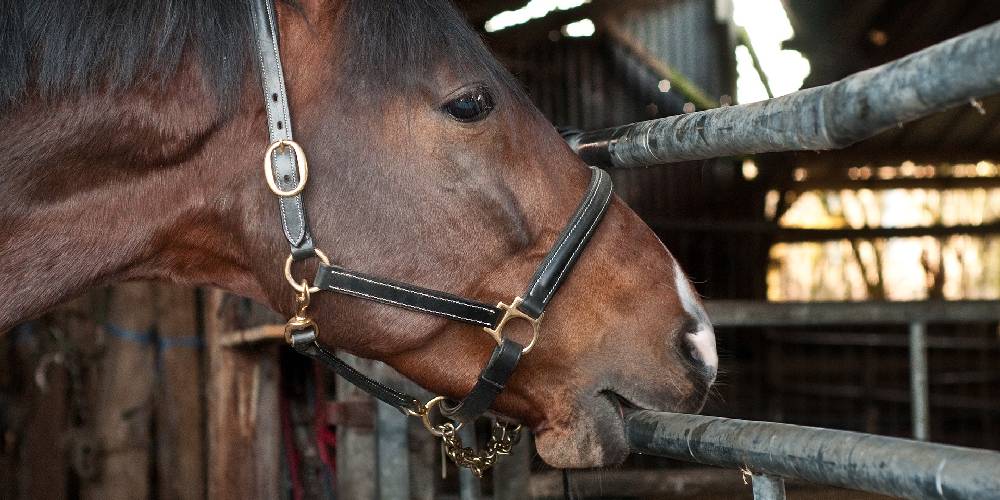Cribbing is a habit that any type of horse can fall into. This dangerous behavior can be learned from stablemates who do it and can create serious health issues for the horse at any time. What is this strange habit? And where do horses learn it from?
What Is Cribbing?
Cribbing is a stable vice that some horses may begin to do out of boredom. Horses who crib are more prone to gas colic than other horses because through cribbing they swallow air. When a horse cribs, it bites onto a rail, door, or other surface and arches its neck. Then, once in this position, the horse sucks air into its throat and swallows it. Once a horse begins cribbing, it is nearly impossible to stop this habit so preventing them from starting it inthe first place is extrremely important!
Why Is It Dangerous To The Horse?
Cribbing poses a great danger to horses even though it appears to be a harmless activity. The main few reasons why this is dangerous for horses involves the swallowing of air.
Horses who crib end up swallowing the air that they suck into their mouth when biting things and arching their neck. The constant intake of air causes the stomach to fill with air creating bloat issues and excessive gas for the horse.
Another reason it is bad for horses is the increased risk for issues like gas colic. Horses who have the bad habit of cribbing are more prone to gas colic. This is because their stomach and intestines are so full of air that it can become painful. Another way it can cause colic is through the guts twisting. If one of the horse’s intestines is full of air, it is a lot easier to twist and kink than it would be if the horse’s intestines were full of food or something else.
How Do Horses Start Cribbing?
Horses can start cribbing from a number of reasons, but the main ones are boredom, and learning from a friend.
Horses who aren’t frequently turned out, ridden, or paid attention to are much more prone to developing this habit than horses who are turned out, played with, and ridden frequently. The reason for this is the neglected horse will get bored and soon will develop things called boredom vices to keep itself entertained. Some boredom vices are weaving, pacing, pawing, wood chewing, and cribbing. Horses need a job and if they don’t have one they should not be put in a place where boredom will get the best of them.
Another common place where horses can pick this up from is from buddies in their barn. Sometimes, horses in barns can all begin to start cribbing after one horse starts to introduce this behavior to its stablemates. If one horse comes to the facility already having the habit, it is not uncommon for the horses in the stalls around that horse to engage in the same or similar behaviors, habits, and boredom vices.
How To Prevent Your Horse From Cribbing
There are many things you can do to keep your horse from developing this nasty habit. To give you a few ideas, I suggest:
Buy Your Horse Toys!
There are many great horse toys out there that can keep a horse entertained in its stall while you are away. Some examples of these are:
- Exercise Balls
- Treat Dispensers
- Hanging Toys
- Salt Licks
- Jolly Balls (a jolly ball is a heavy duty rubber ball with a handle on it so the horse can pick it up easily)
- Hay Balls (basically you put their favorite hay into a big rubber ball with holes in it and the horse will push it around and eat the hay out of it when they can)
- Traffic Cones (I know it sounds really weird, but traffic cones are fun for horses as they are heavy duty, big, and strong enough to withstand the stepping on and biting that horses may inflict on it)
Turn Your Horse Out More Frequently

Horses need time to be horses. I know this may sound confusing to you, but just riding and eating isn’t what is best for your horses. Letting your horse run around in a paddock or pasture will let them burn off energy on their own, relax in their stall, reduce the possibility of boredom vices developing, and make them happier overall. Keeping a horse in its stall all the time is where cribbing and other bad habits begin, so turn your horse out! I’m sure that he or she would love it!
What might be even better for your horse is to turn them out with a close buddy or at least in a pen next to another horse. This will make it so they have someone to run around with and they don’t feel so alone.
Give Your Horse A Job
Sometimes, horses just need a job that they love. If you don’t know what your horse is capable of and you aren’t sure what you should try him out for, test out different styles of riding and disciplines and see what you and your horse love.
Giving your horse a job that they like will make them look forward to riding each and every time you go out to get them. This will give your horse something to focus on so their mind is working rather than getting bored.
Play With Your Horse
Sometimes it can be fun to just do groundwork with your horse. Try turning them out and walking around with them or rolling a ball for them to play with. Horses will bond with you even more if you spend time with them and they’ll accept you as part of their herd.
Spending more time with your horse is beneficial for both of you. Your horse will look forward to seeing you and won’t become as bored in his stall.
How Can I Keep My Horse From Intaking Air?
If cribbing is already an issue for your horse, I recommend getting a cribbing collar. A cribbing collar is basically a collar that clips around the horse’s throat, just behind the jowls or cheekbones. The purpose of the collar is to when they arch their neck and open their throat to swallow air, the cribbing collar will put pressure on their throat to keep the horse from swallowing the air that they suck in. The uncomfortable pressure will stop the horse’s action each time they try to crib. Sometimes cribbing collars work well enough to where the horse stops cribbing, other times the horse will have to wear a cribbing collar all the time. Every horse is unique.
If your horse is still cribbing, even with a collar on, try to put them in an environment where it is hard to crib.

